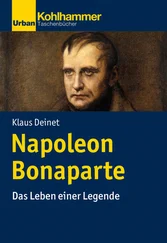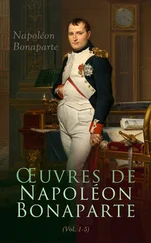But it was not merely the mob that checked the liberalism or constitution of Napoleon, a delicate and doubtful plant in itself, that required the most cautious treatment to make it really take root and grow up in such a soil: Some of his councillors, who called themselves "philosophical statesmen," advised him to lay aside the style of Emperor, and assume that of High President or Lord General of the Republic! Annoyed with such puerilities while the enemy was every day drawing nearer the frontiers he withdrew from the Tuileries to the comparatively small and retired palace of the Elysee, where he escaped these talking-dreamers, and felt himself again a sovereign: Shut up with Benjamin Constant and a few other reasonable politicians, he drew up the sketch of a new constitution, which was neither much better nor much worse than the royal charter of Louis XVIII. We give an epitome of its main features.
The Emperor was to have executive power, and to exercise legislative power in concurrence with the two Chambers. The Chamber of Peers was to be hereditary, and nominated by the Emperor, and its number was unlimited. The Second Chamber was to be elected by the people, and to consist of 629 members; none to be under the age of twenty-five. The President was to be appointed by the members, but approved of by the Emperor. Members were to be paid at the rate settled by the Constituent Assembly, which was to be renewed every five years. The Emperor might prorogue, adjourn, or dissolve the House of Representatives, whose sittings were to be public. The Electoral Colleges were maintained. Land tax and direct taxes were to be voted only for a year, indirect taxes might be imposed for several years. No levy of men for the army nor any exchange of territory was to be made but by a law. Taxes were to be proposed by the Chamber of Representatives. Ministers to be responsible. Judges to be irremovable. Juries to be established. Right of petition, freedom of worship, inviolability of property, were recognised. Liberty of the press was given under legal responsibility, and press offences were to be judged with a jury. No place or part of the territory could be placed in a state of siege except in case of foreign invasion or civil troubles. Finally, the French people declared that in the delegation it thus made of its powers it was not to be taken as giving the right to propose the re-establishment of the Bourbons, or of any Prince of that family on the throne, even in case of the extinction of the imperial dynasty. Any such proposal was formally interdicted to the Chambers or to the citizens, as well as any of the following measures,.viz. the re-establishment of the former, feudal nobility, of the feudal and seignorial rights, of tithes, of any privileged and dominant religion, as well as of the power of making any attack on the irrevocability of the sale of the national goods.
Shortly after the return of Napoleon from Elba, believing it to be impossible to make the Emperor of Austria consent to his wife's rejoining him (and Maria Louisa had no inclination to a renewal of conjugal intercourse), Napoleon had not been many days in Paris when he concocted a plan for carrying off from Vienna both his wife and his son: In this project force was no less necessary than stratagem. A number of French of both sexes much devoted to the Emperor, who, had given them rank and fortune, had accompanied Maria Louisa in 1814 from Paris to Blois and thence to Vienna. A correspondence was opened with these persons, who embarked heart and soul in the plot; they forged passports, procured- relays, of horses; and altogether arranged matters so well that but a for a single individual—one who revealed the whole project a few days previously to that fixed upon for carrying it into effect—there is little room to doubt that the plan would have succeeded, and that the daughter of Austria and the titular King of home would have given such, prestige as their presence could give at the Tuileries and he Champs-de- Mai. No sooner had the Emperor of Austria discovered this plot, which, had it been successful, would have placed him in a very awkward predicament, than he dismissed all the French people about his daughter, compelled her to lay aside the armorial bearings and liveries of Napoleon, and even to relinquish the title of Empress of the French: No force, no art, no police could conceal these things from the people of Paris; who, moreover, and at nearly the same time; were made very uneasy by the failure of Murat's attempt in Italy, which greatly increased the power and political influence of Austria. Murat being disposed of, the Emperor Francis was enabled to concentrate all his forces in Italy, and to hold them in readiness for the re-invasion of France.
Конец ознакомительного фрагмента.
Текст предоставлен ООО «ЛитРес».
Прочитайте эту книгу целиком, купив полную легальную версию на ЛитРес.
Безопасно оплатить книгу можно банковской картой Visa, MasterCard, Maestro, со счета мобильного телефона, с платежного терминала, в салоне МТС или Связной, через PayPal, WebMoney, Яндекс.Деньги, QIWI Кошелек, бонусными картами или другим удобным Вам способом.












